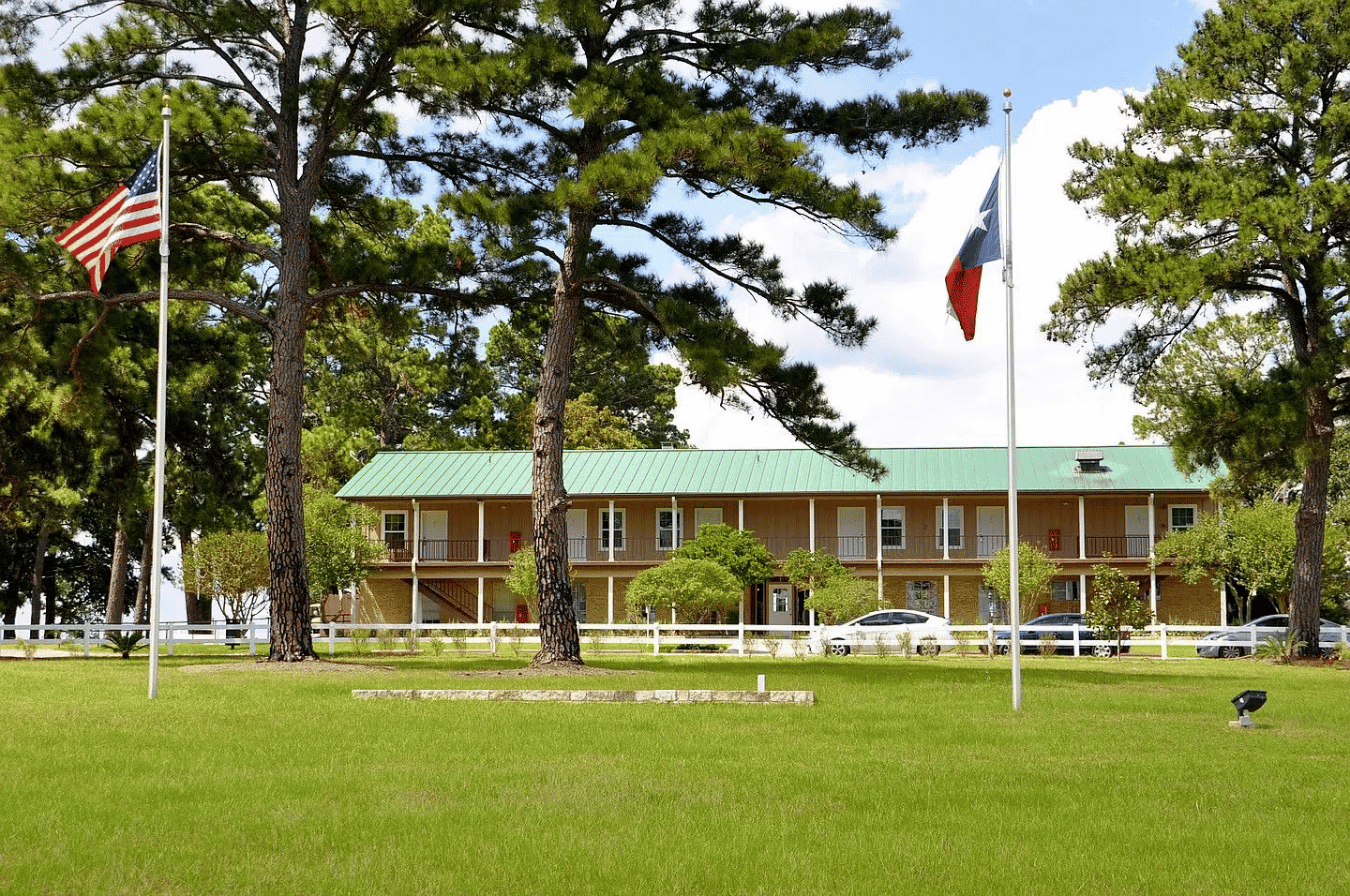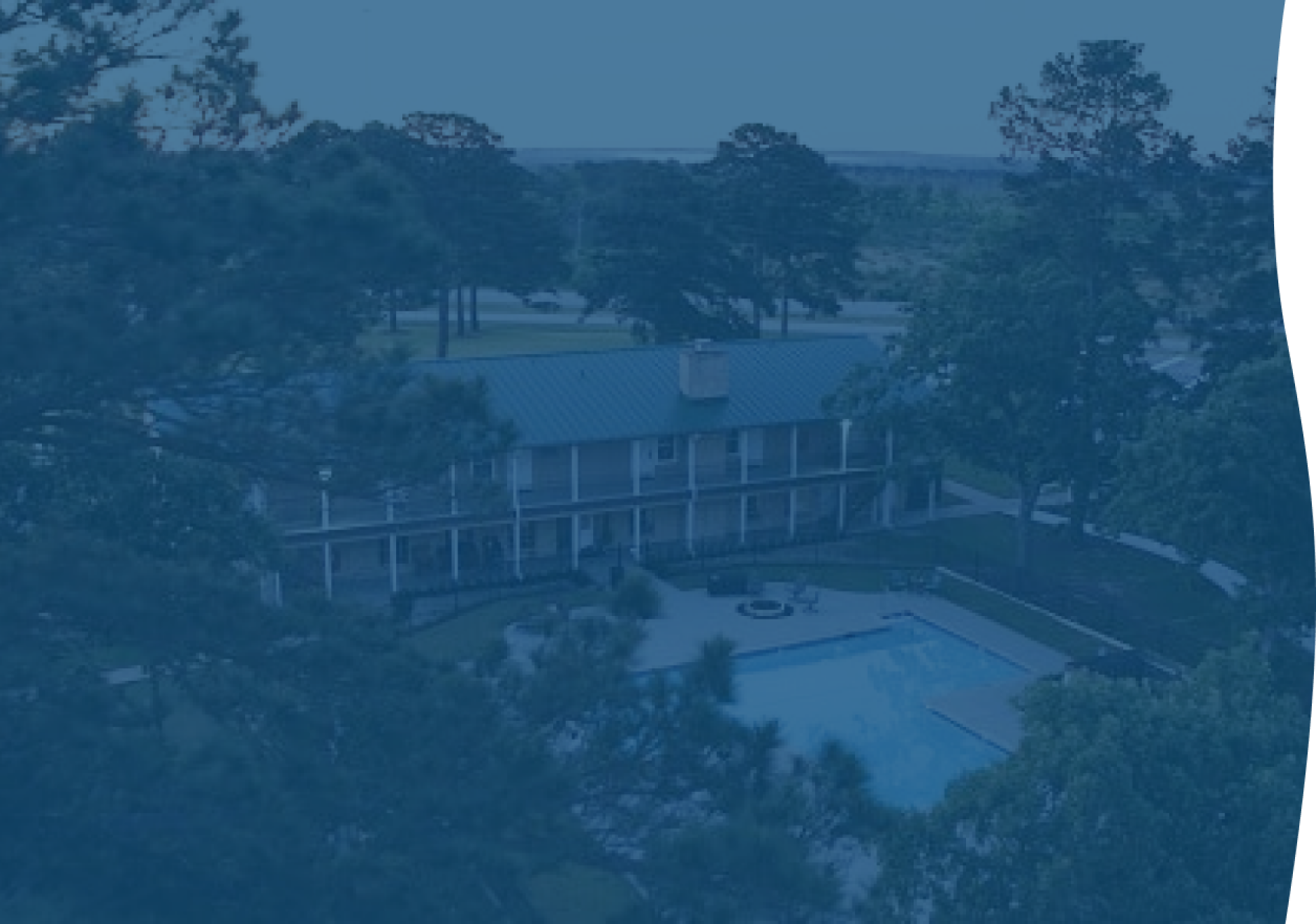
Willow Springs Recovery - Austin, Texas
GET HONEST & ACCURATE QUOTE
Non 12 Step Rehab Houston, Texas
Top rated addiction treatment located on 38 acres of quiet and calming scenery.
- Keep your phone and laptop
- Safe 24/7 monitored detox
- SMART options
- Dual diagnosis programs
- Long-term arrangements
- Thorough aftercare planning
- Located in Bastrop, Texas
- Out of state options in CA, CO and IL
Check your coverage and get informed on admission process! Call us at:
 555-555-5555*
555-555-5555*
*HIPPA Compliant and 100% confidential
MAXIMIZE YOUR PPO COVERAGE WITH OUR HELP
We will work with insurance to get you the best possible coverage and minimize expenses.
And, after they recover, if they encounter someone with a similar problem, they should try to help them.
That’s the basis of the 12 steps, a program of 12 acknowledgments and deeds that people in 12-step programs are encouraged to complete, in numerical order, to get and stay sober.
The Twelve Steps are incorporated in most alcohol and drug rehab programs, not only in Houston, or Texas but around the world. Often rehabs encourage membership with 12-step facilitation or by hosting 12-step meetings on the premises.
Not everyone agrees that the Twelve Steps are right or effective for everyone, however. Some feel that a non-12-step alternative is better. Either way, something needs to be done.
Substance use disorder in Houston, TX
Houston, Texas is the fourth-largest city in the United States and the largest city in Harris County and Texas. Texas also has the longest border with Mexico, through which an estimated 90% of illegal drugs enter the nation.
Despite that, and the increase in illicit drug use since the COVID-19 pandemic and stay-at-home orders, Texas doesn’t have a very bad drug problem for its size and compared to the nation as a whole.
Texas has the third-lowest (per capita) rates of:
- Drug use
- Drug addiction
- Drug overdose deaths
Harris County and Houston, Texas do have a higher overdose death rate (12.4 per 100,000) than Texas as a whole (10.6), but still far lower than the U.S. as a whole (21.0)
On the other hand, Texas has the second-lowest rate of available drug treatment centers per capita.

Drug threats in Houston, TX
While the opioid crisis (heroin, oxycodone) gets most of the press, there are other deadly and illegal drugs.
According to a 2019 University of Texas analysis, the biggest drug threats in Texas were the stimulants methamphetamine and cocaine. That assessment was based not only on the severity of abuse but also because meth and cocaine have fewer treatment options than opioids.
Opioids can be deadly, but some drugs can:
- Reverse an opioid overdose (naloxone or Narcan).
- Safely control opioid cravings without causing euphoria (buprenorphine or Suboxone, methadone).
- Prevent opioids from causing euphoria (naltrexone or Vivitrol).
No such remedies exist for stimulants.
A December 2021 drug bust in Houston seized more than 300 pounds each of meth and cocaine, but only 13 pounds of heroin. Also seized were 40 pounds of fentanyl, another opioid.
Fentanyl in Houston, TX
Fentanyl was not much on the radar in 2019 but is deadlier than all the others. Fentanyl is as much as 50 times more potent than heroin. Just 3 milligrams of fentanyl is usually lethal, and one pound is the equivalent of 150,000 such doses.
Because fentanyl is so potent, a tiny miscalculation can cause an overdose. Making it worse is that people don’t always know they are using fentanyl. Suppliers and dealers add or substitute it for other, harder-to-obtain drugs, including meth and cocaine.
From 2019 to 2021, opioid overdose deaths in Harris County more than tripled in Harris County. More than two-fifths of all overdose drug deaths were due to fentanyl.
Alcohol abuse in Houston, TX
Compared to other states, Texans don’t drink that much. It falls below the middle, with 28 states reporting higher per capita alcohol consumption and only 21 lower. It even falls below the national average.
On the other hand, in 2022, Texans consumed 2.26 gallons of alcohol on average, which is more than a drink per day, more than 11 per week. Since heavy drinking is defined as more than 15 drinks per week for men and eight for women, that suggests a lot of Texans are heavy drinkers.
In 2019, the latest year for which figures are available, Texans also ranked fifth for the number of motor vehicle deaths due to alcohol impairment. From 2019 to 2020, alcohol-related deaths in Harris County increased by more than a third.
Increasing treatment for substance use disorders is in everyone’s interest, given the estimated $442 billion economic cost to society—$193 billion due to illicit drug use and $249 billion due to alcohol.
What is 12-step rehab?
Twelve-step programs for people with substance use disorders—most prominently Alcoholics Anonymous (AA) but also Narcotics Anonymous (NA) and some tailored for specific drugs—are not a medical or psychological treatment for addiction. They are mutual support peer fellowships, meetings of, by, and for people with a SUD to share their experiences, challenges, and solutions.
Among the advantages of 12-step programs are:
- They are well-known. Almost everyone has at least heard of Alcoholics Anonymous. AA was started in 1935 and is familiar through representation in books, films, and TV shows. When people with a SUD realize or decide they need help, a 12-step group may be the first thing they try.
- They are free. There is no cost to attend meetings, no membership fee, and no membership list. All it takes to become a member is to want it.
- They are almost everywhere. AA (and to a lesser extent NA) has meetings every day. In larger cities, sometimes multiple meetings daily in multiple locations. Houston, Texas has around 2,000 weekly. Especially since the COVID-19 pandemic began, they are often online.
- They provide a ready-made community of people who are or want to become and stay sober. It’s far more difficult to stay sober if you keep hanging out with old drinking or drug-taking buddies.
Despite that, 12 -step programs also have some disadvantages that make them not always a good fit:
- They are faith-based and contain elements of Christianity—references to God, prayers at the beginning and closing of meetings, asking God to remove the defects that make addiction possible—that may make non-Christians feel uncomfortable or excluded.
- Members of 12-step groups are encouraged to attend a meeting a day in the first 90 days and to continue going to meetings for life.
- SUDs often have underlying causes that require behavioral therapy. Without such therapy, substance use is more likely to recur.
- Evidence of their efficacy is self-reported and mostly anecdotal. People in 12-step programs do get and stay sober, but there is little direct evidence that they work any better than other methods with more scientific backing.
For those uncomfortable with the 12 steps or who are not having success with the 12 steps, there are non-12-step alternatives.
What is Non-12-step rehab?
There can be more than one type of non-12-step program. Any program with fewer, more, or no steps is a non-12-step program. Usually, a non-12-step program is secular and based on science.
A non-12-step program required more than a non-12-step group. It probably requires treatment in a dedicated drug or alcohol rehab in Houston, TX on either an outpatient (visits to the center several times a week) or inpatient (living at the center for 30, 60, or 90 days).
If individuals haven’t completed withdrawal from substance use before treatment begins, they may go through a medically monitored detoxification before therapy begins.
The non-12-step rehab center will offer additional therapies, including:
- Drug education. Information on how addiction affects the brain and body, how to avoid triggers, and other relapse prevention strategies.
- Behavioral therapies. Cognitive-behavioral therapy or other psychotherapies or talk therapies to cope without intoxicants.
- Medication-assisted treatment. The use of other drugs to reduce or avoid the symptoms of withdrawal and sometimes prevent cravings.
- Holistic practices. Also known as complementary or alternative medicine (CAM), these include therapies from traditional medicine (acupuncture, massage), movement therapies (yoga, tai chi, qigong), mindfulness meditation, and working with horses (equine therapy).
The center’s counselors will also collaborate with the individual on an aftercare plan to maintain sobriety after rehab ends. This will probably include membership in and regular attendance at a 12-step or non-12-step group.
Non-12-step support groups
Non-12-step support groups also rely more on science and evidence-based treatments—such as cognitive-behavioral treatment (CBT)— than faith or steps. They do still rely on peer support and building new sober friendships and habits.
Not all non-12-step groups and programs include lifelong abstinence as a goal. Some only advocate for moderation. When that goal is taken into account, non-12-step groups have about the same success rate as 12-step ones.
The most common non-12-step support groups are:
- SMART Recovery (Self-Management and Recovery Training).
- LifeRing Secular Recovery.
- Women For Sobriety.
- Secular Organizations for Sobriety.
It doesn’t matter whether individuals choose 12-step or non-12-step, as long as it works. If it doesn’t, try something else.
Sources
Medical disclaimer:
Sunshine Behavioral Health strives to help people who are facing substance abuse, addiction, mental health disorders, or a combination of these conditions. It does this by providing compassionate care and evidence-based content that addresses health, treatment, and recovery.
Licensed medical professionals review material we publish on our site. The material is not a substitute for qualified medical diagnoses, treatment, or advice. It should not be used to replace the suggestions of your personal physician or other health care professionals.





